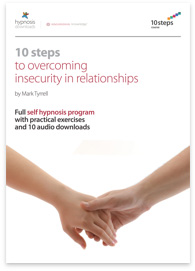Increase Emotional Intimacy in Relationships
7 tips to help you relax with someone special
 "Increase Emotional Intimacy in Relationships" courtesy of Elmo Alves
"Increase Emotional Intimacy in Relationships" courtesy of Elmo Alves"It is not time or opportunity that is to determine intimacy. Seven years would be insufficient to make some people acquainted with each other, and seven days are more than enough for others." - Jane Austen
"He was as remote as the dark side of the moon. When he left, I returned his mail, having written on the envelopes 'Never known at this address'. Because although we were married for nine years, I really do feel I never really knew him. And he didn't know me at all."
Strange one, this: how can we live with someone, see them every day, sleep with them (Biblically and otherwise), share all kinds of experiences, but still not feel emotionally intimate with them? Candice was telling me the reasons why she felt she'd had to divorce her husband.
"It wasn't that he did anything wrong. It's just that he doesn't really do intimacy; looking back, we were never close."
As she spoke, I pondered what 'emotional intimacy' really means.
Getting emotionally intimate
Emotional intimacy is a sense of closeness to another person; a real sense of two-way empathy. When we're emotionally intimate, we can share personal feelings, display affection, and not be dismissed or judged harshly but accepted 'in the round'.
I love the idea that a real friend "is one who can see straight through you and still enjoy the view." And some romantic partners describe their special person as their 'best friend' - a perfect combination of physical and emotional intimacy.
Emotional intimacy can exist between friends, family relations, and lovers. Some people even feel emotional intimacy with their pet. There's no doubt that a sense of shared intimacy is important for both mental and physical health (1).
So you have intimacy when you feel spontaneous, natural, and trusting they feel as connected to you. But it goes deeper than that.
A sense of shared perception
I think emotional intimacy is also a sense of seeing life through the same eyes, sharing experiences in similar ways and feeling connected in knowing what one another would probably think about something, as in: "John would have loved this..."
Emotional intimacy is so important; but what if you find it difficult to let yourself feel close and intimate? Perhaps you find it difficult to relax and be intimate with people, even when you've known them for a long time. These emotional intimacy tips should help you to connect more deeply with people in your life.
1) Name the cause and move on
What's been preventing you feeling intimate with someone? There'll be some reason for habitually keeping people at arm's length. Perhaps you've found it difficult to trust people because you've been let down before. Maybe you were raised in a household that influenced you to feel distrustful of affection. You might have developed a cynical mindset about others. Whatever the reason, think about what may have led you to feel reluctant about getting close.
Of course, there may be real reasons why you can't relax with, and feel connected to, someone. Perhaps they are untrustworthy or abusive. If this is the case, then it would be right not to naturally feel intimate with them. But if you've had long-term intimacy issues, it may help to reason why, with this proviso:
Just discovering possible reasons from the past has limitations. Knowing doesn't always help us to actually change. So the next tip is all about starting to change.
2) Get physical bit by bit
Behaving differently can make us feel differently; so even when you don't particularly feel intimate and relaxed, start by making small changes one at a time. For example, if you have a partner, then start to take time to hug them when perhaps you normally wouldn't (not when they're driving or swimming in the deep end : ) ) - maybe before they go to work and also when they come back.
One man I spoke to said that he and his wife only ever touched when they had sex. I encouraged them to have more non-sexual touch and after a couple of weeks they reported feeling much closer to one another. They also found that this increased physical closeness had become second nature.
Increased hugging and holding hands with your partner, even if it doesn't feel natural at first, can begin to increase intimacy. Just start to do it very gradually, else it might seem too sudden a change. But...
3) Know the difference between physical and emotional intimacy
The prolific romance writer Dame Barbara Cartland once wrote: "Among men, sex sometimes results in intimacy; among women, intimacy sometimes results in sex." I think there's some truth in that: generally, men can disconnect their feelings; whereas women may feel sex is a bridge to greater intimacy, men may feel sex is "just sex".
Of course, a general rule isn't absolute. But it's wrong to assume that physical intimacy will inevitably lead to emotional intimacy - especially if it isn't accompanied by relationship building outside the physical aspect. When we feel disconnected from our partner, the physical intimacy will likely be less satisfying. I recall someone once telling me she had "slept around" in her youth because she was desperate for intimacy with anyone. She'd since learned that physical intimacy was no guarantee of greater emotional intimacy.
It's wonderful when two people are physically and emotionally intimate, but one won't necessarily lead to the other. So emotional intimacy is not all about being physically close; the way you relate to others also determines levels of intimacy.
4) Make small disclosures
Some people tell you all and everything about themselves in a big splurge of intimate self-disclosure - too much too soon. I've noticed that these are often people you might not even know at all. I recall a fellow passenger on a flight fixing onto me and telling me her life story, hopes, desires, and anxieties. She had no idea I was a therapist, but here I was with all this information about her in my head.
We don't need to go to those extremes, but the opposite can distance us from others. Never telling others what you feel about something, never sharing information about yourself, has a way of stretching the divide between people. Get into the habit of telling other people how you feel about stuff, what your thoughts are, what your hopes are...
Yet, there's a caveat here, too:
5) Don't drive intimacy away by trying too hard
I remember feeding sting rays in the sea in Tobago (well, it seemed safe!). If I tried too hard to force feed these gliding creatures, they'd run (okay, swim...obviously) a mile. But when I relaxed, stayed still, and let them come to me in their own time, then they'd take food from my hand quite naturally.
Intimacy is about sharing and making connections. I always think disclosures need to be exchanged; so rather than grilling someone and making them feel defensive ("Well, how was your day? What are you thinking? Now what are you thinking?"), we can allow people space in which intimacy can be given a chance to work.
Being intimate is like a dance. Sometimes we are close and at other times we have more space, but we are always 'in orbit' of one another. Demanding too much intimacy too soon can drive it away.
6) Remember: Don't go tarring with the same brush
If you suspect you've had trouble making and maintaining emotional intimacy, it may be that you were hurt in the past and feel that getting close to others just leaves you too vulnerable. Actually, of course, having other close people in our lives makes us much less vulnerable (2), but it's understandable that past hurts can make us wary of future closeness.
Your unconscious mind is there, in large part, to err on the side of caution and keep you safe. But sometimes its attempts at keeping you safe backfire and prevent you getting what you need in life. Some people let others down and some people don't let others down. Feeling and acting as if everyone always lets you down is unrealistic and a losing strategy.
Start to think about the differences between people. If you have been wanting to get close to someone but have been afraid of intimacy, write down (and think about everyday) the differences between them and any people who let you down before. This will gently train your unconscious mind to open up more.
7) Look for exceptions
When we are labelled (or label ourselves) with the tag of having 'problems with emotional intimacy', we can start to feel unrealistically hopeless. But problems are seldom absolute. Think about times when you have felt closer and connected - whether that's been with a pet, a friend from schooldays, or a family member. What does that closeness feel like? What does it do for you? If you feel that you've really never experienced emotional intimacy, then get into the habit of imagining what it's going to feel like.
Being close to someone, having good friends, and knowing that problems can be shared is one of the most precious things in life.
10 Steps to Overcome Insecurity in Relationships course
Despite how much you love your partner, are you worried you're driving them away?...
References
- A loving relationship may even be the antidote to pain (at least in part), according to an experiment recently carried out by a team of psychologists at the University of California. When 25 female volunteers were subjected to mild burns whilst being shown photographs of their boyfriends, strangers, and inanimate objects, they reported less pain whilst looking at the images of their loved one. Similar results were found when the women were allowed to squeeze the hand of their boyfriend as opposed to the hand of a stranger or squeezing a stress ball. The researchers said the study, published in Psychological Science, "underscores the importance of social relationships and staying socially connected."
- One study conducted by the Centre for Ageing Studies at Flinders University in Australia (published in the Journal of Epidemiology and Community Health) recruited 1,500 people over the age of seventy for a decade and found that people who had a strong network of friends were 22% less likely to die. The study separated any influence of lifestyle habits, family support, wealth, and social status from this conclusion. So aside from the pleasure and satisfaction that having good, solid friendships can bring, if you take steps to keep your social life healthy, you are likely to live longer and be physically healthier yourself.






